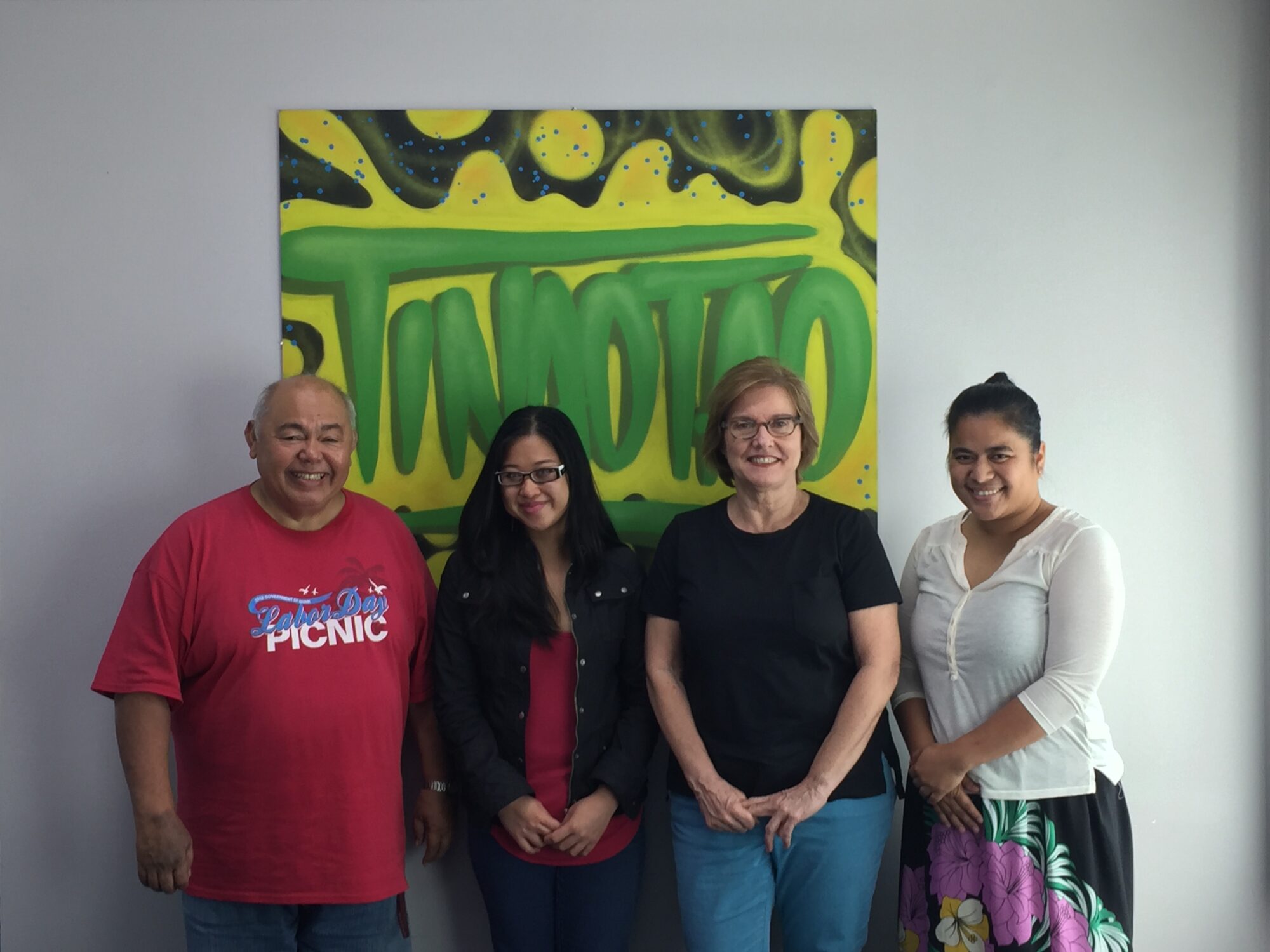MANGILAO, Guam—For 62-year-old Barrigada resident Lupe Cruz, two great blessings in life include being able to give back to the island community she was raised in and the opportunity to meet new people while doing so.

Nine years ago, Cruz discovered that she could pursue both passions by volunteering with Humanities Guåhan, an independent nonprofit organization that dedicates itself to providing humanities programming, foundational support and educational resources for the people of Guam.
As a volunteer, Cruz has assisted in the nonprofit’s various programs, which include youth tours, museum exhibitions and community discussions that focus on environmental and cultural issues facing Guam and Micronesia.
“Volunteering with them is a great way to share life, ” she said. “It’s through exchanging ideas with people on this island that I’ve learned to know a little more about myself and other people.”
Although Cruz reveals that she will continue her lifelong journey of meeting and helping others, she realizes that the fate of her favorite nonprofit is being threatened under President Donald Trump’s proposed budget for fiscal 2018.
The budget plan, which was released in March of this year, calls for the elimination of several independent cultural agencies — among them, the National Endowment for the Humanities.
These proposed cuts prompted Humanities Guåhan, which receives a portion of their funding from the NEH, to start a petition soliciting support for the protection of the endangered public programs.
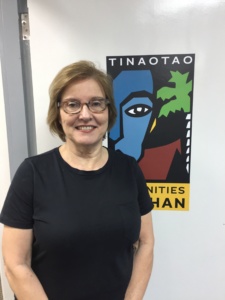
Kimberlee Kihleng, executive director of Humanities Guåhan, expressed concerns regarding the possibility of being defunded.
“Guam would lose a lot,” Kihleng said. “There’s really no other organization on island that focuses on public humanities and does the kind of programming that we do.”
Since its establishment as a grant-funding initiative in 1991 by a group of Guam citizens, which included UOG President Robert Underwood, Humanities Guåhan has worked with more than 50 local and international organizations in developing various community-based programs.
The Motheread literacy enhancing program, for instance, is Humanities Guåhan’s longest-running project. Since 2000, facilitators have been teaching reading curriculums to disadvantaged parents, such as those who are incarcerated and those with limited English-speaking skills.
“It creates family bonding and better relationships between children and their parents,” Kihleng said. “We really try to encourage further education and they’ve been very successful in doing that.”
Humanities Guåhan also works with Museum on Main Street, a component of the Smithsonian Institution Traveling Exhibition Service. Through this partnership, the nonprofit brings national exhibition tours to Guam and develops local installments to accompany them.
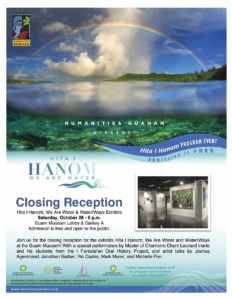
Their latest companion exhibit, “Hita I Hanom: We Are Water,” concluded in October and explored the cultural, environmental and spiritual significance that water has in the people of Guam’s lives.
The water exhibit encouraged attendees to start thinking about ways they can protect the island’s natural resources, said Bernice Santiago, a programming coordinator for Humanities Guåhan.
Beyond current projects, Kihleng assures that Humanities Guåhan will continue to perpetuate the humanities for the island’s enjoyment regardless of financial scares.
“Funding is always going to be a challenge for us, as it is for most nonprofits,” she said, “but I’m very optimistic. I love the programs we’re doing and we’ve got some exciting things lined up for 2018.”
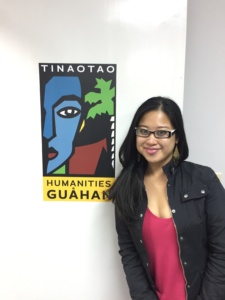
Kihleng also stresses that community involvement by volunteers like Cruz makes the maintenance of humanities programming possible.
“When it comes to being a part of a democracy, you need to be a thoughtful, engaged participant,” Santiago added. “Having a deeper awareness of the world makes you a better person and a stronger contributor to our world, and that’s what the humanities can give you.”
